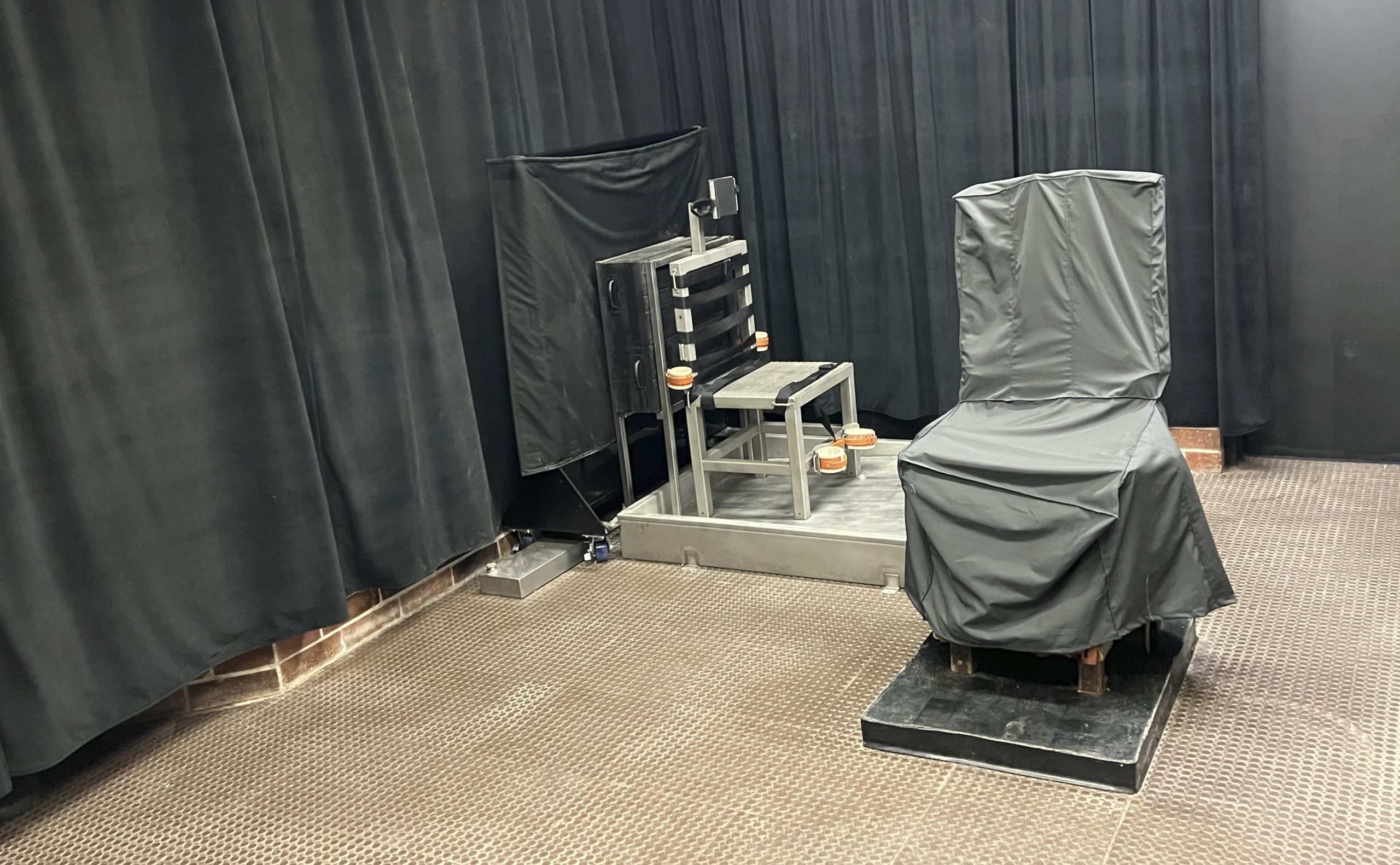Judge to decide if firing squad or electric chair is cruel

This photo provided by the South Carolina Dept. of Corrections shows the state's death chamber in Columbia, S.C., including the electric chair, right, and a firing squad chair, left.
Photo: South Carolina Department of Corrections via AP
Whether South Carolina can start executing prisoners again either with a firing squad or electric chair is now in the hands of a judge after a trial over whether shooting or electrocuting inmates is cruel and unusual punishment banned by the U.S. Constitution.
Lawyers for four death row inmates argued this week the prisoners would feel terrible pain whether their bodies were “cooking” by electricity or heart stopped by marksman’s bullet — assuming they are on target.
Attorneys for the state countered with their own experts who said death by the yet-to-be-used firing squad or the rarely-used-this-century electric chair would be instantaneous and the condemned would not feeling any pain.